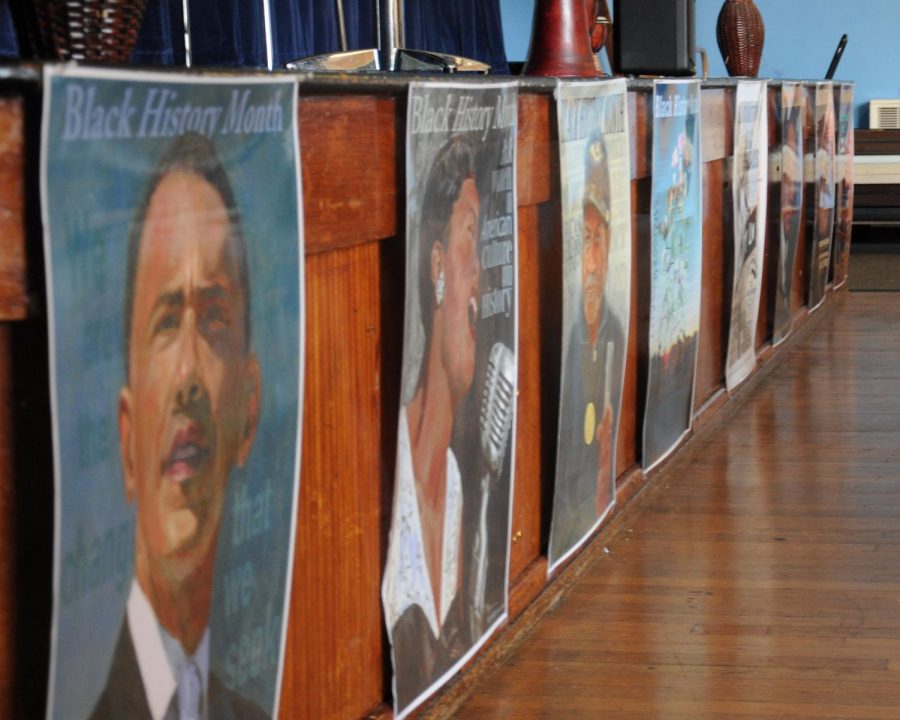Column: Black history isn’t ancient history
Photo Courtesy Wikimedia Commons
Black history is not just stories about nameless slaves and prominent Black figures, rather the lives of people who were just as human as you and me.
February 20, 2019
“Dear Students, they didn’t steal slaves. They stole scientists, doctors, architects, teachers, entrepreneurs, astronomers, fathers, mothers, sons, daughters, etc., and made them slaves. Sincerely, your ancestors.”
Mississippi middle school teacher Jovan Bradshaw decorated her classroom door with these words in honor of Black History Month. Photos of it soon went viral. Bradshaw reminds us that these are not just stories about nameless slaves and prominent Black figures, rather they are the lives of people who were just as human as you and me.
Carter G. Woodson started the first annual Negro History Week in 1926. He was the son of two slaves, and later earned a doctorate at Harvard University and became a renowned author, historian and journalist. Negro History Week occurred during the second week of February to coincide with the birthdays of Abraham Lincoln on the 12th and Frederick Douglass on the 14th. The holiday was extended to a full month in 1976, not because it is the shortest month of the year, but to celebrate the bicentennial of the establishment of the week-long event.
Both of my parents were already born by 1976, meaning that during a significant portion of my grandparents’ lifetime, there was no Black History Month. Many monumental strides in Black history have only occurred in the last century, which is not that long within the scope of American history.
American schools were desegregated in 1954. Legal barriers prohibited Black citizens from voting until the enactment of the Voting Rights Act of 1965. Interracial marriage wasn’t legalized nationwide until 1967. Black people were legally denied jobs and housing until the Fair Housing Act of 1968.
But with these strides, we also struggle.
School curriculum often romanticizes the few stories of Black history taught, thus making them more easily forgotten. For example, the relationship between Thomas Jefferson and Sally Hemings, a slave owned by Jefferson, is often portrayed as a “love story,” when there was no evidence she could refuse his advances. This inaccurate representation makes the story more removed from the harsh reality of their relationship, in which Hemings was most likely sexually abused by Jefferson.
This notion that Black history is “ancient history” persists because of the dehumanization of slave stories and the perception that the United States became “post-racial” following the civil rights movement and the election of a Black president. However, much of this history occurred in our grandparents’, parents’ and even our lifetimes. Our history classes make the lives of Black figures into fairytales of the past rather than true stories of real people who endured pain, suffering and sometimes even death.
These stories are still happening today. In the 1990s, 145 Black churches were set on fire throughout the South. Every U.S. president was white until 2008. White supremacists marched in our nation’s capital in 2018. Flint Hill, a predominantly black neighborhood in Michigan, still doesn’t have safe drinking water in 2019.
Just a few months ago, a white student called the police on a Black Yale graduate student taking a nap in a communal lounge. Imagine working your entire life to attend one of the most prestigious colleges in the United States only to have authorities invalidate your presence at the institution. Imagine the humiliation of knowing your classmates don’t believe you belong there. These are realities Black people face daily, which is why Black History Month is necessary to raise awareness of such injustices.
This year, we celebrate the 43rd Black History Month. Though the holiday existed for most of our lifetimes, that is not the case for many of our living relatives. It is not only important to remember, it is important to commemorate its existence and ensure future generations not only look back on the Black history of trials and tribulations, but also the potential those successes and hardships give us to continue blazing ahead.
After all, Black history is not ancient history — it is history still in the making.


















